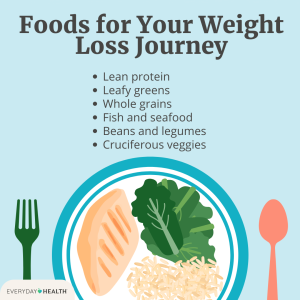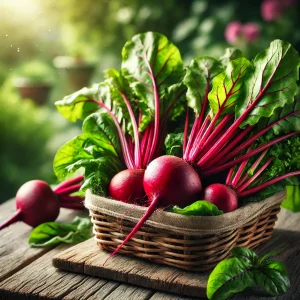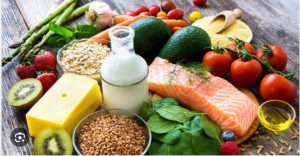
Embarking on a healthy weight journey requires not just exercise but also a well-balanced, nutrient-rich diet. The foods you eat play a crucial role in managing your weight, boosting metabolism, and promoting overall well-being. Focusing on whole, nutrient-dense foods rather than processed options helps create a calorie deficit while providing the body with essential nutrients. Here are 16 of the best foods for your healthy weight journey, each with its own unique benefits for weight loss, muscle preservation, and overall health:
1. Leafy Greens (Spinach, Kale, Swiss Chard)
Leafy greens are among the healthiest foods you can eat, and they’re perfect for anyone on a weight loss journey. These vegetables are low in calories but high in vitamins, minerals, and fiber, which help keep you full and satisfied. The high fiber content in leafy greens also aids digestion and promotes a healthy gut. Their low calorie density means you can eat large portions without consuming excessive calories, making them ideal for weight control.
2. Eggs
Eggs are a fantastic source of protein, healthy fats, and essential nutrients like vitamin D and choline. Eating eggs for breakfast has been shown to reduce calorie intake throughout the day, thanks to their ability to promote satiety. Protein-rich foods like eggs help maintain muscle mass, especially when you’re losing weight, and they boost metabolism. Eggs also provide amino acids that assist in fat burning, making them an excellent choice for anyone aiming to lose or maintain weight.
3. Salmon
Salmon is rich in high-quality protein and omega-3 fatty acids, which are known for their anti-inflammatory properties and ability to improve metabolic function. The healthy fats in salmon help keep you full longer, reducing the urge to snack. Omega-3s have also been shown to reduce fat storage and support fat loss by boosting the body’s ability to burn fat as energy. Eating salmon regularly can help you achieve a balanced, healthy weight while providing your body with vital nutrients.
4. Greek Yogurt
Greek yogurt is a high-protein dairy product that can help keep you full, curb cravings, and aid digestion due to its probiotics. It’s also packed with calcium, which plays a role in fat breakdown and may support fat loss. Choose plain, unsweetened Greek yogurt to avoid added sugars, which can sabotage weight loss efforts. You can add fresh fruit, nuts, or a drizzle of honey for natural sweetness while keeping it healthy.
5. Avocados
Avocados are nutrient-dense and contain healthy monounsaturated fats, which are known to help reduce belly fat. Despite being high in calories, the fats in avocados promote satiety and can help curb overeating. They also contain fiber, which aids digestion and helps regulate blood sugar levels. Including avocados in your diet can support healthy weight loss while providing a good source of essential vitamins and minerals like potassium and vitamin E.
6. Berries (Blueberries, Strawberries, Raspberries)
Berries are low in calories but high in antioxidants, fiber, and vitamin C, making them a great choice for weight management. The high fiber content in berries helps slow digestion and keeps you feeling fuller for longer. Antioxidants in berries, such as anthocyanins, may help reduce fat storage and promote fat burning. Berries are also naturally sweet, making them a healthy alternative to sugary snacks or desserts.
7. Chia Seeds
Chia seeds are small but packed with nutrients. They are an excellent source of fiber, omega-3 fatty acids, protein, and antioxidants. When soaked in liquid, chia seeds form a gel-like consistency that helps keep you feeling full longer. This can prevent overeating and reduce overall calorie intake. Chia seeds also support digestive health and help stabilize blood sugar levels, making them a great addition to a weight loss diet.
8. Cottage Cheese
Cottage cheese is another high-protein, low-calorie food that’s perfect for weight loss. It’s rich in casein, a slow-digesting protein that helps keep you full for hours. Eating cottage cheese as a snack or part of a meal can help stabilize blood sugar levels and prevent mid-day cravings. Additionally, it’s packed with calcium and other essential nutrients that support bone health and overall metabolic function.
9. Nuts (Almonds, Walnuts, Pistachios)
Nuts are a great source of healthy fats, fiber, and protein, which can help reduce hunger and curb cravings. Despite being calorie-dense, studies have shown that nuts can actually support weight loss and weight management when consumed in moderation. The healthy fats in nuts provide lasting energy and satiety, making them an ideal snack for weight-conscious individuals. Nuts also contain essential vitamins and minerals that support heart health and overall well-being.
10. Sweet Potatoes
Sweet potatoes are a nutritious and filling carbohydrate source that can help regulate blood sugar levels and prevent energy crashes. They are high in fiber, which promotes fullness and digestive health, and they have a low glycemic index, meaning they are less likely to spike blood sugar levels compared to refined carbohydrates. Sweet potatoes also contain antioxidants like beta-carotene, which supports overall health while helping you maintain a healthy weight.
11. Quinoa
Quinoa is a complete protein, meaning it contains all nine essential amino acids, making it an excellent plant-based protein source. It is also high in fiber, which can promote fullness and reduce appetite. Quinoa has a relatively low glycemic index, helping to regulate blood sugar levels and support fat loss. This nutrient-dense grain can be used as a base for salads, bowls, or as a substitute for rice and pasta in various dishes.
12. Green Tea
Green tea is well-known for its fat-burning properties, largely due to its high content of catechins, particularly epigallocatechin gallate (EGCG). Green tea has been shown to increase fat oxidation and improve metabolic function, making it a great beverage choice for anyone on a weight loss journey. Drinking green tea regularly can also help control appetite and reduce the risk of fat accumulation, especially around the abdominal area.
13. Lentils and Legumes
Lentils, beans, and other legumes are excellent sources of plant-based protein and fiber, which can help regulate blood sugar levels and keep you feeling full. The high fiber content in legumes also supports digestive health and promotes gut health, while the protein helps preserve muscle mass during weight loss. Including lentils and legumes in your diet can help balance blood sugar and maintain energy levels throughout the day, preventing overeating and snacking on unhealthy foods.
14. Apple Cider Vinegar
Apple cider vinegar (ACV) has been linked to numerous health benefits, including weight loss. ACV is believed to help regulate blood sugar levels, increase feelings of fullness, and promote fat burning. Some studies suggest that consuming apple cider vinegar before meals can help reduce calorie intake and prevent fat storage. To avoid potential digestive discomfort, it’s best to dilute ACV in water and consume it before meals as a part of your weight loss plan.
15. Cucumbers
Cucumbers are hydrating and low in calories, making them an ideal food for weight management. With high water content and minimal calories, cucumbers can help you feel full without contributing to excess calorie intake. They’re also rich in antioxidants and contain a variety of vitamins and minerals that support skin health and digestion. Including cucumbers in salads, snacks, and smoothies can help keep you hydrated and satisfied.
16. Tomatoes
Tomatoes are low in calories and high in nutrients like vitamin C, potassium, and lycopene, a powerful antioxidant that helps fight inflammation and supports metabolic health. They are also rich in water, which can contribute to feelings of fullness and hydration. Tomatoes can be added to various dishes, including salads, soups, and sauces, to enhance flavor and provide nutritional benefits while supporting weight management.
Conclusion: Building a Balanced, Sustainable Weight Loss Plan
Incorporating these nutrient-dense, filling foods into your diet can play a crucial role in your weight loss journey. The key is focusing on whole, minimally processed foods that support your metabolism, provide lasting energy, and keep you full for longer periods. Along with regular physical activity, a well-rounded diet that includes a variety of these foods will help you achieve and maintain a healthy weight while promoting overall well-being. Remember, the goal is not just weight loss but also creating a balanced, sustainable eating pattern that nourishes your body and supports long-term health.



 DailyMediCure
DailyMediCure 









